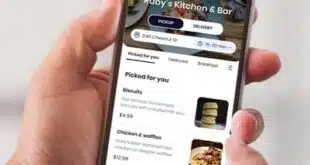Bill Me Later Inc. will work with two to three merchants starting next month to test an extension of its online, credit-based payments service to the physical point of sale. If the test yields good results, the Timonium, Md.-based processor will likely launch a commercial service by the middle of 2008 “at the latest,” says Vince Talbert, vice president of marketing. The move represents a rare effort by a Web-based transaction specialist to extend its service into the world of brick-and-mortar commerce. Up to now, alternative-payments processors that handle e-commerce transactions have been reluctant to offer payments at the point of sale, though PayPal Inc. has come close with its PayPal Mobile service, which allows consumers to make impulse purchases of items like DVDs on their handsets in response to promotions they see on billboards or in print ads. But the move is one Talbert says follows the 5-year-old Bill Me Later's corporate strategy, which involves treating the Internet not as a separate channel but rather as part of a merchant's overall merchandising platform. “One thing that is important to us is an integrated multichannel experience,” Talbert says. “Interoperability is really key to us. Merchants demand it.” Talbert is mum on most details about the project, which he refers to as a “beta” test. The merchants, he says, are well-known brand names. Transactions might be handled at a Web-enabled kiosk inside the store or via a swipe of a merchant-branded loyalty card, which would contain the credentials Bill Me Later would need to process the transaction. Bill Me Later has offered a physical card of its own for more than two years, which jewelry merchant Ross- Simons and “a few other merchants” have adopted, Talbert says. Now the processor is preparing to bring to the point of sale its core service, which allows consumers to sign up using a short form and then make purchases by giving their birth dates and the last four digits of their Social Security numbers. If approved for credit, buyers can revolve balances as they would on a credit card. Bill Me Later requires a 3% minimum payment or $20, whichever is greater. By offering an alternative payment method, the processor figures an extension of its basic service to the point of sale will shore up merchant-customer relationships that are often frayed by the loss of intimacy once typical of neighborhood shops. “That relationship between merchant and customer is deteriorating, so we're focused on how we can recreate that connection,” says Talbert. The card, he says, functions well as a loyalty device while the core service will support impulse purchases. The company also supports promotional financing, which allows merchants to offer consumers deals like 90 days or six months same as cash. Bill Me Later immediately credits merchants with guaranteed funds and then invoices buyers. Large merchants pay 1.5% plus 15 cents per transaction for the ordinary credit-based transaction; pricing for smaller merchants may be higher, according to Talbert. More than half of Bill Me Later's 700 merchants now offer promotional financing, he says. The importance of offering credit online has not escaped the notice of other e-commerce transaction processors. PayPal recently introduced its PayPal Pay Later service, which extends 90-day free financing deals to accountholders (Digital Transactions News, Aug. 8).
Check Also
The Pizza Ranch Chain Adds Digital Wage Access Through Payments Provider Branch
Pizza Ranch Inc., a Midwestern buffet restaurant chain specializing in pizza and chicken, has added …





